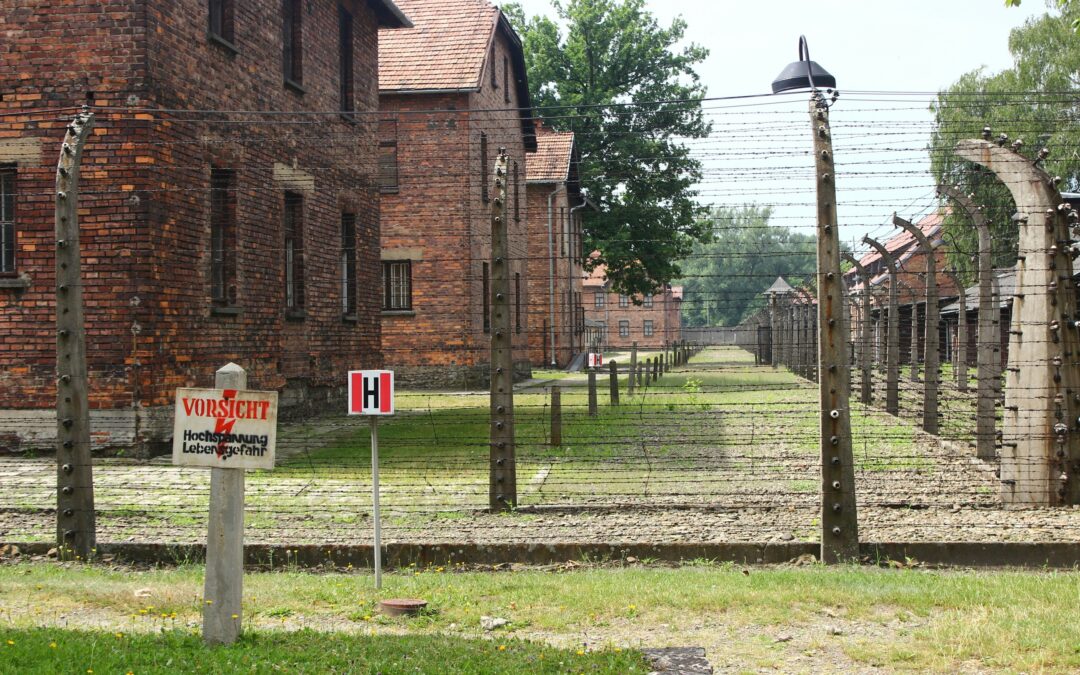Facebook’s owner, Meta, has apologised to the Auschwitz Museum for flagging some of its posts commemorating victims of the German-Nazi camp as violating the platform’s community standards. They were identified for alleged violations including “bullying and harassment” and “sexual solicitation”.
In a statement today to the IAR news agency, Meta claimed that the posts had been flagged accidentally and without any effect on their appearance on the platform. However, the museum claims that at least one of the posts was “removed without the possibility of recourse”.
The episode has also prompted intervention from Poland’s government, with the digital affairs minister calling it a “scandal” and demanding an explanation from Meta. The Auschwitz Museum is a Polish state institution.
"Facebook's Algorithmic Erasure of History"
We wish to express our deep concern regarding the recent action of @facebook simultaneously flagging 21 posts published by the Auschwitz Memorial.
The posts, which serve as tributes to individual victims of Auschwitz, have been… pic.twitter.com/FG2qSZMsGX
— Auschwitz Memorial (@AuschwitzMuseum) April 12, 2024
The situation was first reported by the Auschwitz Museum on 12 April in a post on X (formerly Twitter), where the museum expressed its concern over Facebook flagging 21 of its recent posts as violating community standards.
According to the museum, the posts contained images and histories of some of the victims of the camp, which was established in occupied Poland by Nazi Germany in 1940.
The museum shared screenshots of some of the posts in question as well as of notifications informing that they had been flagged by the platform’s content moderation system for alleged violations including “nudity and sexual activity,” “hate speech” and “violence and incitement”.
Polish far-right party @KONFEDERACJA_ has been banned from Facebook for "repeated violations" of rules against Covid disinformation and hate speech.@Meta's decision was criticised by two Polish government officials, who called it a threat to free speech https://t.co/pH3ocltS2U
— Notes from Poland 🇵🇱 (@notesfrompoland) January 5, 2022
According to the notifications, that had resulted in the flagged posts being moved lower down on Facebook’s news feed, meaning they were less visible to users.
The museum, however, noted that “the posts in question feature nothing but respectful remembrance and historical documentation”. It called Facebook’s actions “offensive to the memory of the victims of Auschwitz” and “hurtful to survivors, descendants, and all those committed to preserving historical truth”.
It added that, despite “immediate appeal and request for review, only a fraction of the flagged posts have been reinstated”. Meanwhile, one post from 6 April commemorating Jewish children from an orphanage in Izieu was “removed without the possibility of recourse”.
The @AuschwitzMuseum has condemned the use of the Holocaust for political purposes after Poland’s ruling party featured the former German Nazi death camp in a video criticising an upcoming anti-government march by the opposition https://t.co/D9nefM5YaZ
— Notes from Poland 🇵🇱 (@notesfrompoland) May 31, 2023
The museum demanded “an immediate and thorough review of this matter, along with a transparent explanation” from Meta.
Poland’s digital affairs minister, Krzysztof Gawkowski, likewise declared the incident a “scandal and illustration of the problems with automatic content moderation”. He announced that his ministry would seek further explanations from Meta.
Gawkowski added that such incidents are “one of the reasons why we are working so hard to implement the European DSA [Digital Services Act] law”, which aims to better regulate social media platforms in order to protect the rights of users.
Ukrywanie postów upamiętniających ofiary @MuzeumAuschwitz to skandal i ilustracja problemów z automatyczną moderacją treści.
Będziemy domagać się od @Meta informacji o powodach tej sytuacji. Moderatorów powinno być więcej, a ci, którzy pracują na polskim rynku powinni znać nie… https://t.co/MMjEMGtV4b
— Krzysztof Gawkowski (@KGawkowski) April 13, 2024
In a statement to the IAR agency, Meta said that Facebook had “mistakenly sent notifications to the Auschwitz Museum informing that several posts published by the museum would be displayed lower in the news feed”.
“In fact, this content does not violate our policies and has never been moved lower on the news feed,” it added. “We sincerely apologise for this error.”
The company did not provide information as to whether the incident was the result of errors in an automated system or the fault of human moderators responsible for monitoring Facebook content.
Ocenzurowane wpisy Muzeum Auschwitz. Meta przeprasza.https://t.co/9z03v69sgx
— Wyborcza.pl Kraków (@Wyborcza_Krakow) April 17, 2024

Notes from Poland is run by a small editorial team and published by an independent, non-profit foundation that is funded through donations from our readers. We cannot do what we do without your support.
Main image credit: Lāsma Artmane/Unsplash

Agata Pyka is a former assistant editor at Notes from Poland. She specialises in Central and Eastern European affairs, cybersecurity, and investigative reporting. She holds a master’s degree in political communication from the University of Amsterdam, and her work has appeared in Euractiv, the Balkan Investigative Reporting Network (BIRN), and The European Correspondent, among others.



















